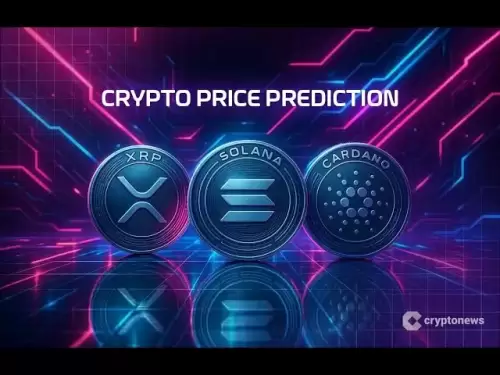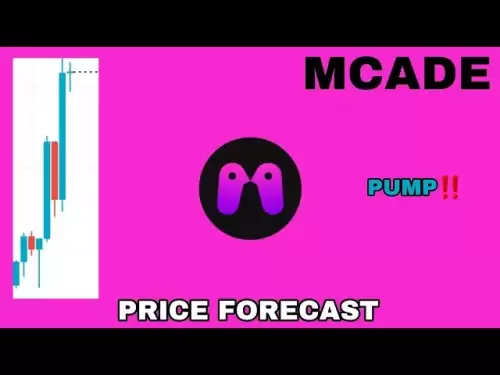-
 Bitcoin
Bitcoin $118,841.1054
1.02% -
 Ethereum
Ethereum $3,364.2689
7.44% -
 XRP
XRP $3.0337
3.93% -
 Tether USDt
Tether USDt $1.0004
0.04% -
 BNB
BNB $708.2059
2.49% -
 Solana
Solana $173.2385
5.74% -
 USDC
USDC $0.9999
-0.01% -
 Dogecoin
Dogecoin $0.2121
6.85% -
 TRON
TRON $0.3090
2.81% -
 Cardano
Cardano $0.7628
2.25% -
 Hyperliquid
Hyperliquid $46.8391
-2.08% -
 Stellar
Stellar $0.4537
0.15% -
 Sui
Sui $3.9529
-2.88% -
 Chainlink
Chainlink $16.6414
3.72% -
 Hedera
Hedera $0.2354
1.52% -
 Bitcoin Cash
Bitcoin Cash $499.1285
0.43% -
 Avalanche
Avalanche $22.6400
0.57% -
 Shiba Inu
Shiba Inu $0.0...01438
4.88% -
 UNUS SED LEO
UNUS SED LEO $8.8507
-0.64% -
 Toncoin
Toncoin $3.1498
2.35% -
 Litecoin
Litecoin $97.4954
1.21% -
 Polkadot
Polkadot $4.1541
1.50% -
 Monero
Monero $331.4406
-1.03% -
 Pepe
Pepe $0.0...01350
5.24% -
 Uniswap
Uniswap $8.9103
-5.01% -
 Bitget Token
Bitget Token $4.7540
4.51% -
 Dai
Dai $0.9999
-0.02% -
 Ethena USDe
Ethena USDe $1.0008
0.00% -
 Aave
Aave $322.3328
-1.63% -
 Bittensor
Bittensor $431.8026
-0.50%
How to avoid NFT scams?
Stay vigilant: verify NFT authenticity, secure your wallet, and avoid fake marketplaces to protect against scams.
Jul 12, 2025 at 01:49 am
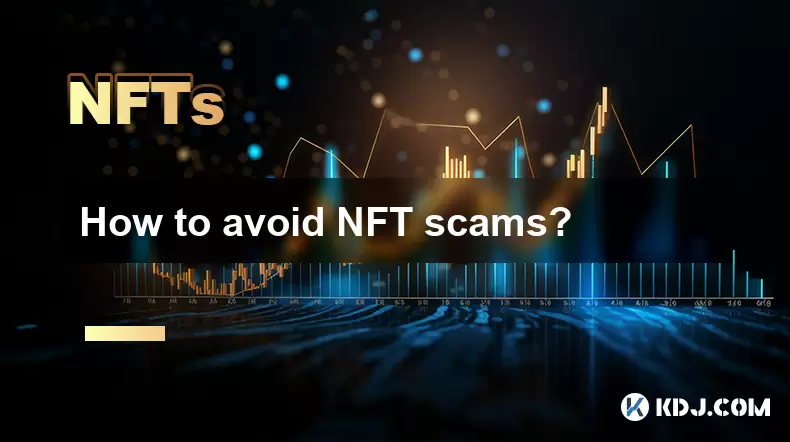
Understanding the Nature of NFT Scams
The rise of Non-Fungible Tokens (NFTs) has introduced a new wave of digital ownership and creative monetization. However, with this growth comes an increase in NFT scams that target both novice and experienced users. These scams can range from fake marketplaces to counterfeit tokens and phishing attacks. Understanding how these scams operate is crucial for protecting your assets and personal information.
One of the most common forms of NFT fraud involves counterfeit collections. Scammers mint unauthorized copies of popular NFTs and list them on platforms under false identities. Unsuspecting buyers may end up purchasing these fakes at high prices, only to later discover they own worthless tokens. Another prevalent scam involves impersonating well-known creators or brands to lure users into fraudulent sales or giveaways.
Verifying Authenticity Before Purchase
Before buying any NFT, it’s essential to verify its authenticity through multiple channels. Start by checking the creator's profile on the marketplace. Reputable creators often have verified badges or blue ticks next to their usernames. Always cross-reference the NFT collection with the official website or social media accounts of the creator.
Use blockchain explorers like Etherscan or OpenSea’s inspection tools to confirm ownership history and ensure there are no suspicious activities. If you're unsure about a particular NFT, look for community feedback on forums such as Reddit or Discord. Trusted communities often flag known scammers or suspicious projects.
- Visit the official website of the project or artist
- Check verified social media profiles linked to the NFT
- Use tools like OpenSea’s verification system
- Review transaction history via blockchain explorers
Securing Your Digital Wallet
Your wallet is the gateway to your NFTs and cryptocurrency holdings, making it a prime target for scammers. One of the most critical steps in avoiding wallet-related scams is never sharing your seed phrase or private keys with anyone. Legitimate platforms will never ask for this information.
Always use trusted wallet providers such as MetaMask, Trust Wallet, or hardware wallets like Ledger. Enable two-factor authentication (2FA) wherever possible to add an extra layer of security. Be cautious when connecting your wallet to unfamiliar websites or dApps, as this can expose your funds to malicious actors.
Phishing attempts are also common in the NFT space. Scammers may send fake emails or messages pretending to be from platforms like OpenSea or LooksRare. Always double-check the sender’s address and avoid clicking on links unless you’re certain of their legitimacy.
Recognizing Fake Marketplaces and Listings
Scammers frequently create fake versions of legitimate NFT marketplaces to trick users into signing in or listing their NFTs. These clones often mimic the design of real platforms but have subtle differences in the URL. Always type the correct website address manually instead of clicking on links shared via social media or email.
Another red flag is unusually low prices for rare or valuable NFTs. If something seems too good to be true, it likely is. Scammers may list counterfeit NFTs at bargain prices to entice quick purchases. Always inspect the metadata and ownership history before completing a transaction.
Some listings may contain hidden smart contracts that drain funds from your wallet when connected. Always review contract permissions and consider using tools like Trezor Wallet’s contract inspection features to detect malicious code.
- Avoid third-party marketplaces without a solid reputation
- Confirm URLs match official domains
- Investigate unexpected price drops or giveaways
- Use browser extensions like MetaMask’s built-in security features
Staying Informed Through Community Channels
Engaging with active NFT communities can help you stay ahead of potential scams. Joining Discord servers, Telegram groups, or subreddits dedicated to specific NFT projects allows you to receive updates directly from creators and other collectors. Many scams are first reported within these communities before being widely acknowledged.
Follow official announcements from creators and platforms. Scammers often spread misinformation about upcoming mints, airdrops, or collaborations to trick users into giving away their credentials or funds. By staying informed through trusted sources, you reduce the risk of falling victim to these tactics.
Also, pay attention to user reports and blacklists. Some communities maintain lists of known scammer addresses or suspicious collections. Sharing your own experiences can also contribute to collective awareness and protection.
Frequently Asked Questions
What should I do if I’ve already fallen victim to an NFT scam?
If you believe you've been scammed, disconnect your wallet immediately and avoid interacting with the same platform again. Report the incident to the relevant marketplace and consider reaching out to blockchain analytics services like Chainalysis for further assistance.
Are all NFTs on lesser-known marketplaces unsafe?
Not necessarily, but unknown platforms may lack the verification processes found on larger marketplaces. Always perform due diligence before engaging in transactions, including verifying seller identities and reviewing contract details.
How can I check if an NFT has been minted legitimately?
Use blockchain explorers to view the minting transaction. Look for signs of bulk minting, unusual transfer patterns, or mismatched metadata that could indicate a counterfeit token.
Can NFT scams affect traditional investors who don’t hold crypto?
Yes, especially if they interact with NFT-linked financial products or participate in crowdfunding campaigns related to NFTs. Awareness and education remain key regardless of one’s involvement level in the crypto space.
Disclaimer:info@kdj.com
The information provided is not trading advice. kdj.com does not assume any responsibility for any investments made based on the information provided in this article. Cryptocurrencies are highly volatile and it is highly recommended that you invest with caution after thorough research!
If you believe that the content used on this website infringes your copyright, please contact us immediately (info@kdj.com) and we will delete it promptly.
- Biofuel Services Powering Fleet Sustainability & Fuel Delivery: A New Era
- 2025-07-17 06:30:13
- Bitcoin, Altcoins, and Market Dominance: Decoding the Crypto Landscape
- 2025-07-17 06:30:13
- TikTok, Creators, and Records: A Wild Ride in the Digital Age
- 2025-07-17 06:50:13
- Roger Ver, Bitcoin Jesus, and the Extradition Lawsuit: A New York Minute on Crypto's Controversial Figure
- 2025-07-17 06:50:13
- Navigating Bitcoin ETFs with Options: Calamos' Strategy Explained
- 2025-07-17 06:55:13
- Kinder Morgan's Natural Gas Play: Earnings Release Insights
- 2025-07-17 06:55:13
Related knowledge
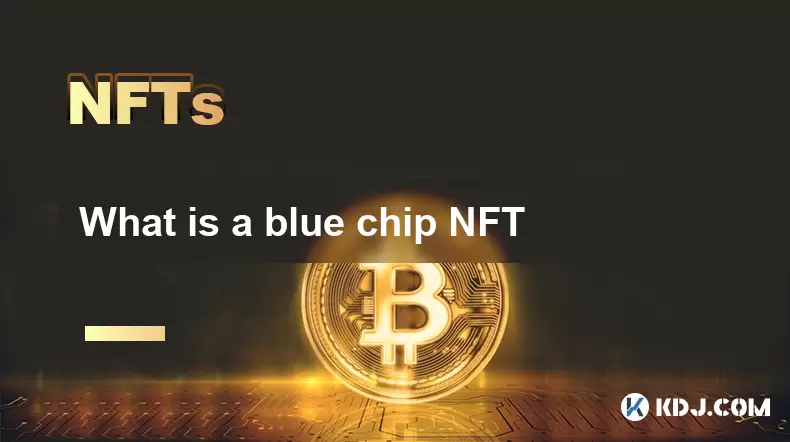
What is a blue chip NFT
Jul 17,2025 at 07:07am
Understanding the Concept of a Blue Chip NFTIn the world of non-fungible tokens (NFTs), certain digital assets stand out due to their consistent value...
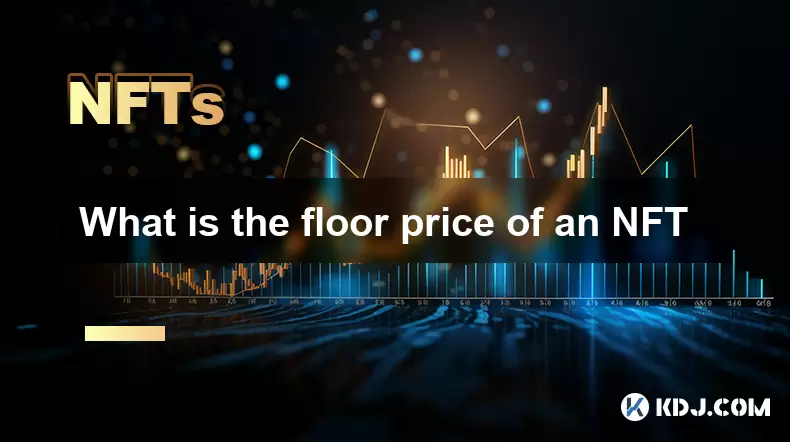
What is the floor price of an NFT
Jul 11,2025 at 07:56am
Understanding the Concept of Floor Price in NFTsIn the world of non-fungible tokens (NFTs), the floor price refers to the lowest price at which a part...
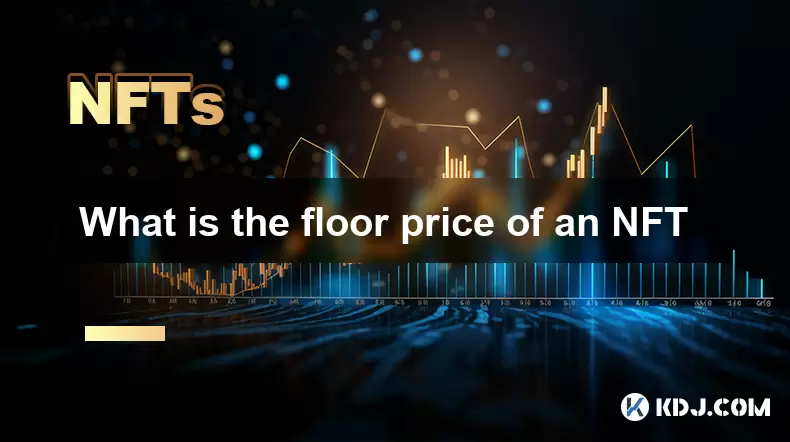
What is the floor price of an NFT
Jul 13,2025 at 06:21am
Understanding the Concept of Floor Price in NFTsThe floor price of an NFT (Non-Fungible Token) refers to the lowest listed price for a particular NFT ...
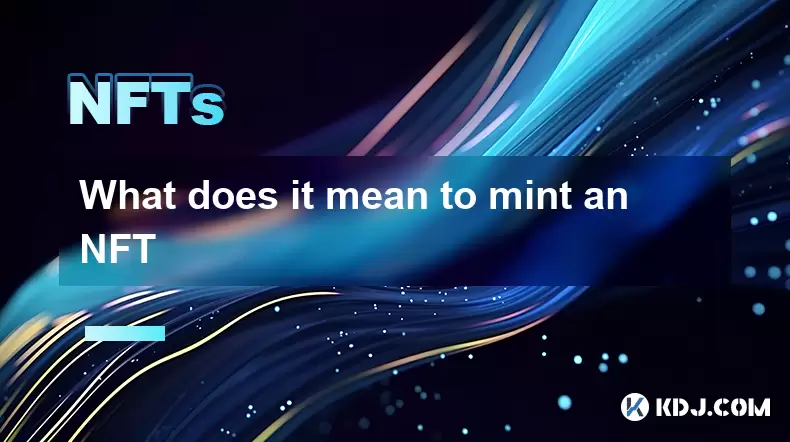
What does it mean to mint an NFT
Jul 11,2025 at 11:56pm
Understanding the Concept of Minting an NFTTo mint an NFT means to create a unique digital asset on a blockchain. This process involves converting a d...
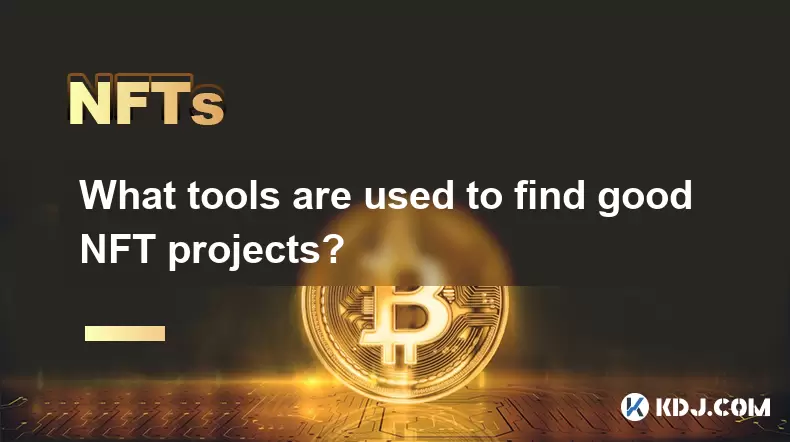
What tools are used to find good NFT projects?
Jul 10,2025 at 12:42pm
Understanding the Importance of NFT DiscoveryIdentifying promising NFT projects is a critical skill for collectors, investors, and creators within the...
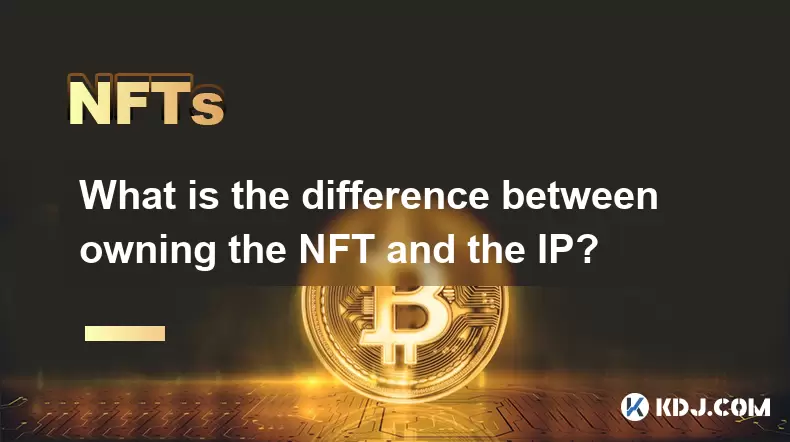
What is the difference between owning the NFT and the IP?
Jul 15,2025 at 07:28pm
Understanding the Concept of NFT OwnershipWhen someone purchases an NFT (Non-Fungible Token), they are acquiring a unique digital certificate that pro...

What is a blue chip NFT
Jul 17,2025 at 07:07am
Understanding the Concept of a Blue Chip NFTIn the world of non-fungible tokens (NFTs), certain digital assets stand out due to their consistent value...

What is the floor price of an NFT
Jul 11,2025 at 07:56am
Understanding the Concept of Floor Price in NFTsIn the world of non-fungible tokens (NFTs), the floor price refers to the lowest price at which a part...

What is the floor price of an NFT
Jul 13,2025 at 06:21am
Understanding the Concept of Floor Price in NFTsThe floor price of an NFT (Non-Fungible Token) refers to the lowest listed price for a particular NFT ...

What does it mean to mint an NFT
Jul 11,2025 at 11:56pm
Understanding the Concept of Minting an NFTTo mint an NFT means to create a unique digital asset on a blockchain. This process involves converting a d...

What tools are used to find good NFT projects?
Jul 10,2025 at 12:42pm
Understanding the Importance of NFT DiscoveryIdentifying promising NFT projects is a critical skill for collectors, investors, and creators within the...

What is the difference between owning the NFT and the IP?
Jul 15,2025 at 07:28pm
Understanding the Concept of NFT OwnershipWhen someone purchases an NFT (Non-Fungible Token), they are acquiring a unique digital certificate that pro...
See all articles























